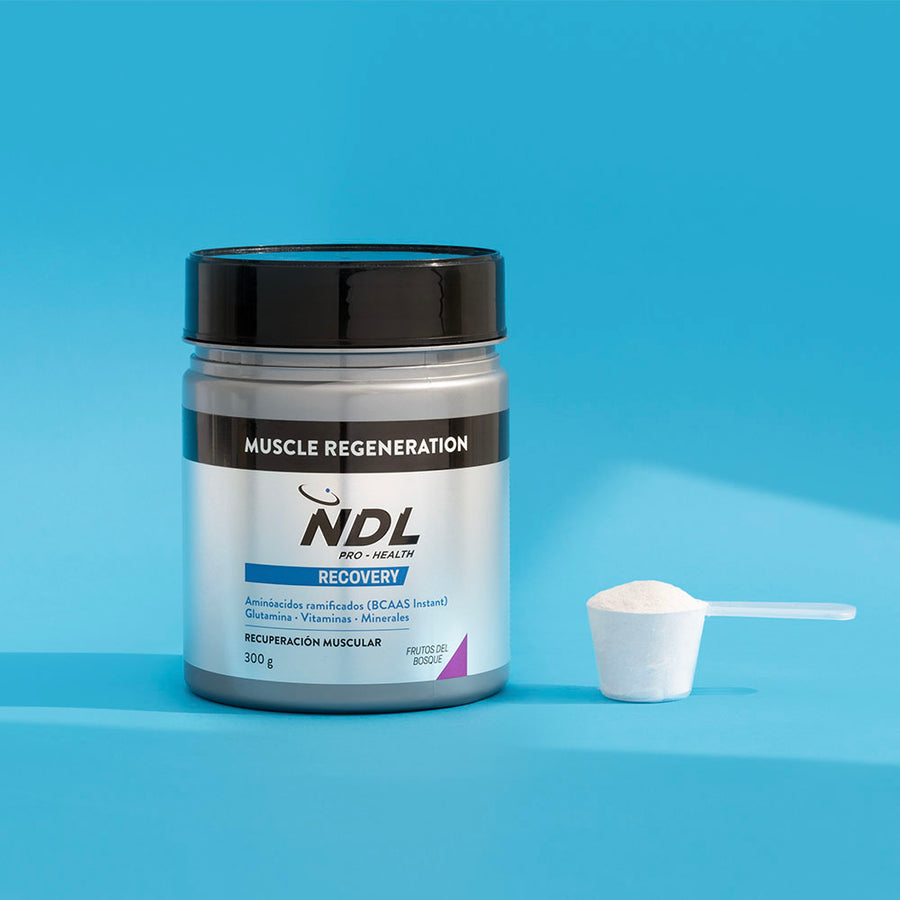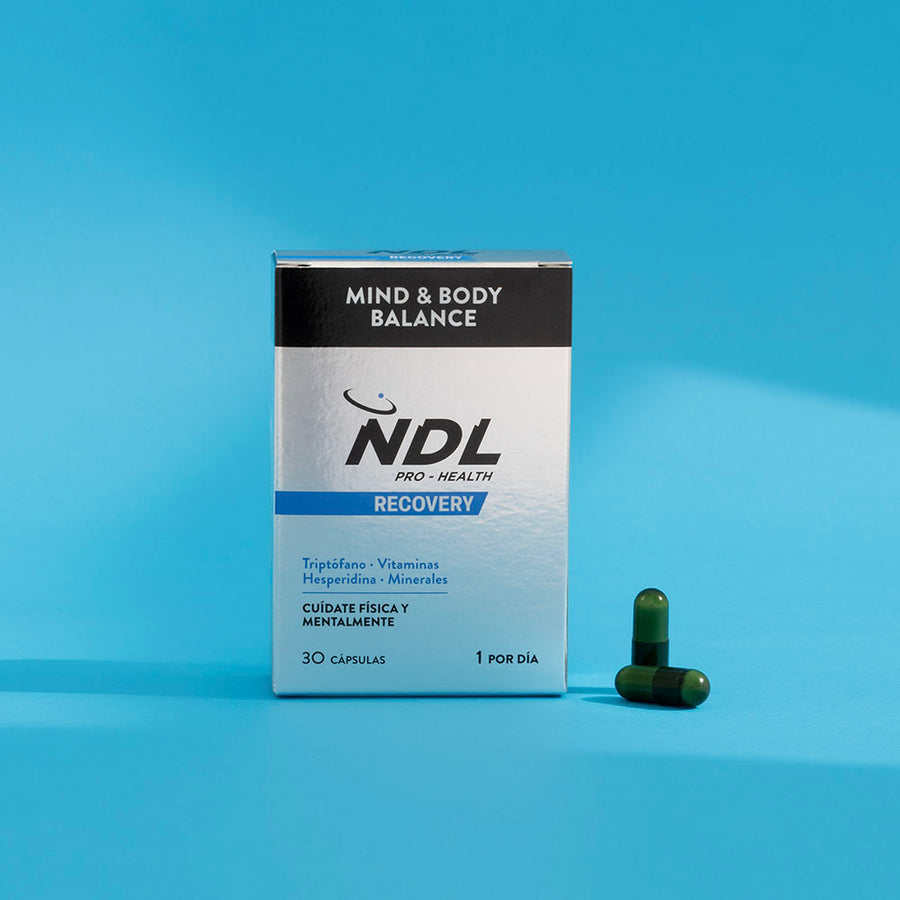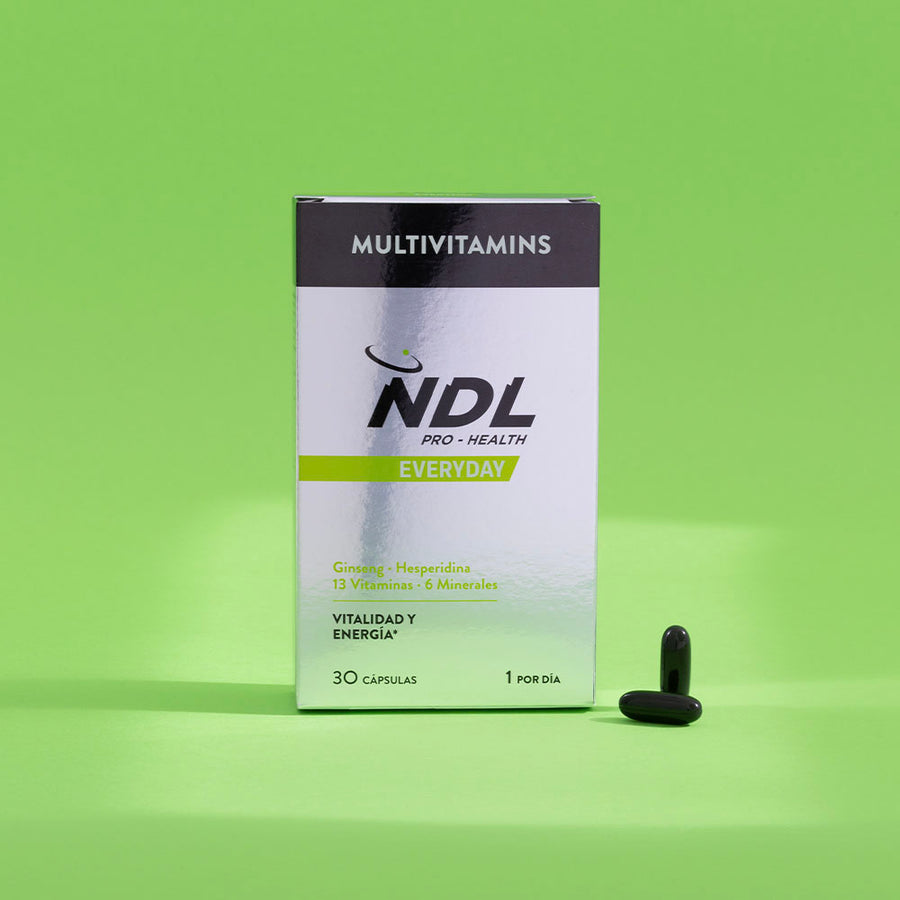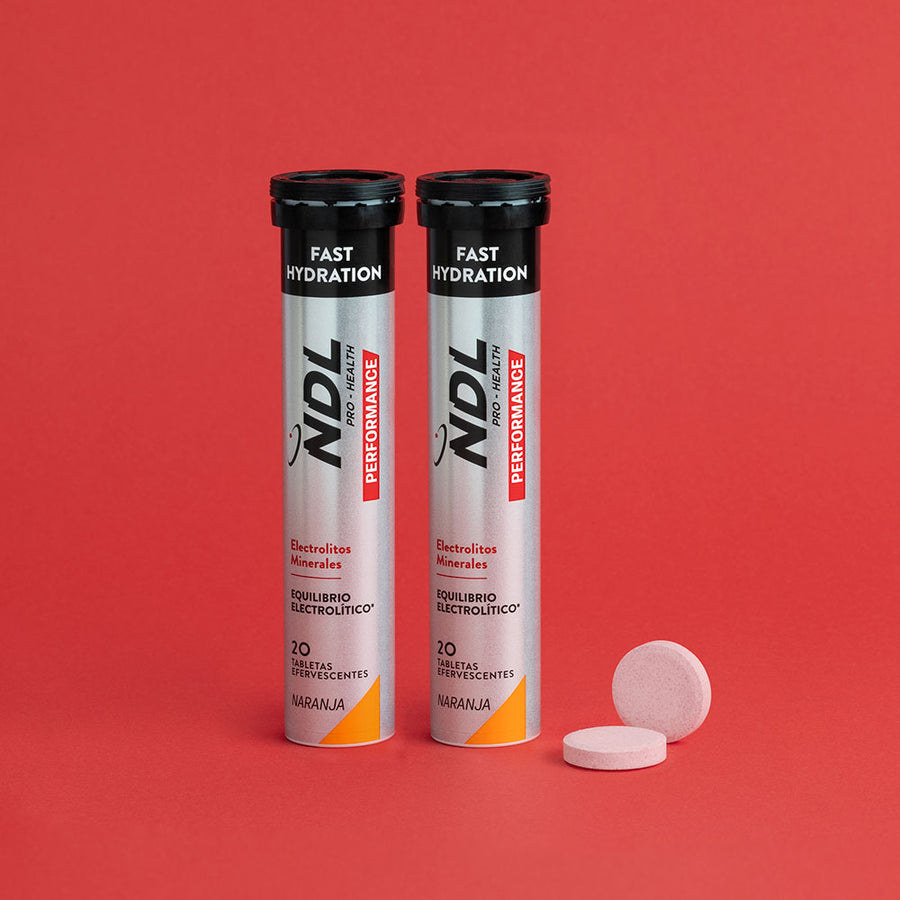Featured Products

Muscle Regeneration
See product
Mind & Body Balance
See product
Multivitamins and Minerals
See product
Fast Hydration
See productMuscle recovery after exercise is very important regardless of whether you are an elite athlete, or a person who exercises to stay in shape several times a week.
In this post we are going to explain why it is so important and what you can do to speed up recovery after training, as well as the impact that a good recovery can have on your sports performance and muscle adaptation.

Importance of post-exercise recovery
The muscle recovery period after exercise is crucial for several reasons:
- Muscle repair: intense or long duration exercise often causes micro-tears in muscle fibers. The recovery period after exercise allows the body to repair these tissues, which is essential for muscle growth and strengthening.
- Energy replenishment: during exercise, the body uses glycogen stored by the muscles as a source of energy. Recovery with carbohydrates makes it possible to replenish losses and be ready for the next day in case of competition or training.
- Preventing fatigue: adequate rest will help prevent muscle and mental fatigue, which will help reduce the risk of overtraining, injury and decreased performance. Prolonged fatigue can even affect motivation and mood.
- Immune system regulation: an adequate recovery period helps to avoid suppression and reduces the risk of infections.
- Reduced risk of injury: Muscle fatigue and lack of recovery can increase the risk of injury. Tired and weakened muscles are less able to withstand the additional stress.
Add that proper physical exercise is a tool to improve cardiovascular health, muscle strength, mental well-being, facilitate the elimination of toxins and neuronal plasticity.
Post-exercise nutrition
From NDL we want to highlight the importance of post-exercise nutrition for muscle recovery, as well as the role played in the diet by a series of key macronutrients: carbohydrates, proteins and fats.
When we train, let alone compete, various physical and chemical reactions occur in our body with three main consequences:
- Our glycogen stores (hepatic and muscular) are reduced.
- We lose water and electrolytes through sweat.
- Muscle proteins are degraded
- Inflammation and depletion of the immune system are generated. It depends on the intensity and duration of the activity.
The importance of hydration in physical recovery
The first objective is to rehydrate your cells with fluids and electrolytes. You must avoid excessive dehydration, rehydrating with 150% of the weight loss (if we have lost 2kg x 1.5= 3kg, we will drink in the next hours 3liters of water).
Generally, replenishing glycogen stores can take 24 to 48 hours. To do this, start replenishing carbohydrates immediately, within the first 30 minutes after exercise to speed up the recovery process.
For 1 gram of carbohydrates, take 3 grams of water. Quantity: 1-2g/kg.
Protein intake in an easy-to-digest form helps your muscles rebuild. quantity: 25-30g
Anti-inflammatory foods: cherry, acai, red fruits, turmeric or omega 3.
What to take for ideal muscle recovery?
You have two options:
Option 1: take the NDL recuperator with 250ml of cow's or goat's milk or 4 yogurts, peanut butter or tahini and berries.
Option 2: drink 1 glass of water at the end and another one before eating. The plate should be composed of muscle recovery foods with carbohydrates, proteins (amount 20-25g) and a good salad with all the colors of the rainbow, in order to have a large spectrum of antioxidants and fight against inflammation.
Below, we share one of the best recipes to recover and regenerate our intestine, muscles, tissues and bones.
Bone broth:
This recipe will provide a major amino acid in muscle and intestinal cells, producing a positive effect on muscle recovery (5g post effort + 3g leucine and if there is prolonged fatigue also in the morning, 5g). It also prevents catabolic processes and reduces the incidence of infections, acting favorably on our digestive system.
Bone broth recipe:
Ingredients:
- 2 bones of pastured cow.
- One chicken carcass.
- Seasonal vegetables.
- 2 bay leaves or a strip of kombu seaweed.
- 1 tablespoon of apple cider vinegar.
- A pinch of unrefined sea salt.
- 3 liters of mineral water or more.
Prepared by:
Cook all the ingredients together over low heat for about 3 hours, at low temperature and with the pot covered. Strain and drink or store in the freezer.
Properties:
Bone broth is rich in collagen. It contains glutamine, an amino acid in charge of repairing the intestine, with anti-inflammatory effect, which improves the activity of the immune system and favors the absorption of nutrients. It also contains glycine, an amino acid that promotes sleep quality.
The same day make sure you go to bed early so that your body can recover as much as possible. If possible, you should be in bed by 10 pm.
The importance of rest in physical recovery
We will see the important role of rest and sleep in the recovery process, which is essential for both physical and mental well-being, directly affecting both muscle repair and the recovery of the nervous system.
- Muscle repair and growth: during exercise, especially during strength training, rest allows the body to repair muscle fibers. This process occurs mainly during sleep, when hormones such as growth factor and testosterone, essential for muscle repair and growth, are released.
- Energy recharge: rest helps to replenish energy reserves depleted during exercise, specifically glycogen stores in the muscles and liver. With a balanced and easily digestible pre-rest diet with carbohydrates, proteins, good quality fats and vegetables.
- Prevention of overtraining: rest helps us to be more balanced physically and emotionally.
Tips for effective rest for muscle recovery:
- It is essential to go to sleep before 10 pm to optimize recovery as much as possible.
- Maintain a regular sleep routine.
- Rest days: incorporate active or complete rest days into your training routine so the body can recover.
- Active recovery techniques in your training routine help to significantly improve your recovery. For example: relaxation, practices such as meditation, reading, heat or cold therapy, relaxation exercises such as yoga can help improve the quality of sleep and rest. It is crucial to listen to your body and choose recovery activities that feel good and are beneficial for your specific situation.
In summary, muscle recovery after exercise is critical for both elite athletes and those who train regularly for health. This process is crucial for several reasons, including repairing muscle micro tears, replenishing energy and glycogen, preventing fatigue and injury, and strengthening the immune system. Post-exercise nutrition, especially adequate intake of carbohydrates, protein and fluids, plays an essential role in recovery. Hydration, along with foods rich in antioxidants and anti-inflammatories, helps accelerate muscle regeneration. In addition, adequate rest, including restful sleep and active rest days, is vital for physical and mental recovery. Incorporating active recovery techniques such as yoga, meditation and hot or cold therapies can significantly improve recovery and sports performance.

I have a diploma in Nutrition and dietetics from CESNID (University of Barcelona), a degree in Nutrition from Kin's College University of London, a postgraduate degree in Sports Nutrition and PNIE (Psychoneuroimmunoendocrinology) from the University of Barcelona, and a diploma in Ayurveda Nutrition, energy cooking and Naturopathy. Course Sport Nutrition at the Natural Gourmet Institute for Health and culinary arts in New York and co-owner of Ametlla + de Mallorca in Artà, I currently advise elite athletes and companies. Director of the nutrition department of Rafa Nadal Academy in Manacor and director of the master of Nutrition and sport of the University Alfonso X.

















